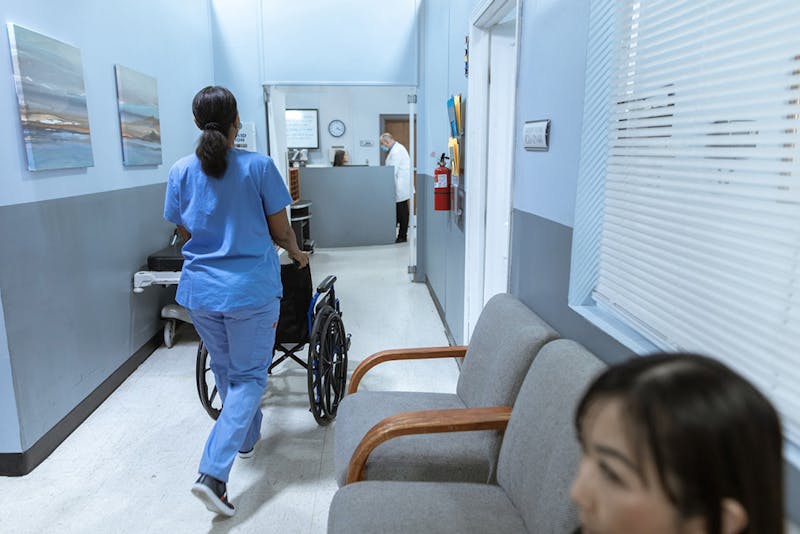
There were at least 131 million visits to emergency rooms in the U.S. in 2020, according to the Centers for Disease Control and Prevention. Over 18 million of the aforementioned patients ended up being admitted to the hospital that same year. While many patients don’t face any challenges when treated in hospitals, some do. Below, we’ll highlight how hospitals can improve patient safety to ensure that patients don’t experience any health setbacks or die while there.
Mistakes That Commonly Occur in Hospitals
Patients run a wide range of risks when staying in hospitals, and the potential dangers they commonly face include:
- Medication errors: These can occur due to negligence on the part of a doctor prescribing the drug, a pharmacist dispensing it, or a nurse administering it. These issues may also occur because there’s an adverse drug interaction with another medication or the wrong drug gets to the wrong patient.
- Childbirth injuries: These are largely preventable, provided doctors and other medical staff properly monitor expectant mothers and their babies during the labor and delivery process, the recovery period, and the rest of their hospital stay.
- Slips and falls: Injuries like these put patient safety on the line and often occur because hospital staff don’t perform fall assessments on patients to know what their limitations are. Additionally, a patient may require assistance to get to the bathroom, for example, and may take matters into their own hands when they don’t get timely help and fall in the process.
- Diagnostic errors: There are well over 100 million annual doctor-patient encounters in U.S. hospital emergency rooms. Most of these visits are the first between a specific physician and their patient, and some are critically wounded or unresponsive, while others have acute conditions requiring immediate medical intervention. Situations like these put medical staff in a position where they must call upon their best medical history-taking, questioning, and comparative diagnosis reasoning skills and be extra careful when reading imaging studies to avoid making costly mistakes.
- Hospital-acquired infections: A clean hospital is a safe one. However, poor training or cleaning protocol, staffing shortages, and training or supervision issues involving cleaning crews may all result in an unsanitary environment that facilitates the spread of hospital or healthcare-associated infections (HAIs) like catheter-associated urinary tract infections, Clostridium difficile, ventilator pneumonia, and others.
- Surgical errors: An anesthesiologist can make a mistake when calculating the dosage to administer to patients. Additionally, the surgical team may not adequately monitor a patient’s vital signs, putting them at risk of adverse events like cardiac arrest or a deprivation of oxygen. Further, the surgeon may make a mistake during the actual surgery, such as operating on the wrong body part or leaving a tool inside when closing up a patient, all of which can cause further health complications or even death.
Strategies Hospitals Can Employ to Improve Patient Care
Medical facilities can make a variety of changes aimed at improving patient safety in the face of the issues described above and other dangerous situations. Some strategies hospitals can employ include:
- Establishing facility protocols regarding all operational aspects, including staffing, cleaning, etc., and having checks and balances to ensure staff follow these protocols
- Properly vetting staff to ensure they are qualified for their role before hiring them on
- Taking time to train new staff members and periodically retrain existing ones to ensure a competency baseline and freshness of their skills
- Having security personnel on staff to ensure there’s little chance of unauthorized individuals who may inflict harm on patients coming in contact with them
- Implementing surgical protocol, including pre-procedure time-outs, tool and medical supply checks before suturing (stitching up a patient), etc.
- Engaging in properly screening patients for falls and providing adequate call equipment and caregiving support to those individuals
- Having an adequate screening protocol in place to ensure trespassers are kept away from patients
- Performing regular quality control checks of facility cleanliness, security protocols, staffing levels, and other aspects that can affect patient safety, including the provision of care
- Creating procedures and systems that make communication more seamless between medical providers, especially at shift transitions and between different treating doctors
Can You Hold a Hospital Accountable for Harming You as a Patient?
An additional study published by the National Institutes of Health shows that at least 251,000 patients die due to doctor errors and other preventable mistakes every year. Countless others suffer irreversible health consequences, such as contracting infectious diseases and disabling injuries.
There are many hospitals here in our capital city, including Baptist Health Medical Center, the University of Arkansas for Medical Sciences (UAMS) Hospital, the Cornerstone Specialty Hospitals, Pulaski County Hospital, Arkansas Heart Hospital, Arkansas Children’s Hospital, and Catholic Health Initiatives (CHI) St. Vincent Infirmary. And doctors at these medical facilities must uphold a certain standard of care when treating you. If they don’t, you can hold them liable for their negligence.
Our Little Rock medical malpractice attorneys have a long track record of holding physicians, nurses, pharmacists, hospitals, and others accountable for unnecessarily putting health and lives at risk. Contact us online or call us at McMath Woods PA for a free initial consultation to discuss the harm you or a loved one suffered.

